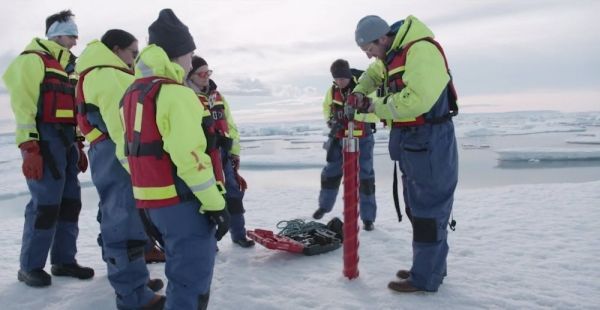The team, traveling as part of the National Science Foundation funded Northwest Passage Project (NPP) to investigate the Canadian Arctic Archipelago, discovered a variety of plastics in the sea ice cores collected from floes in the Passage.
The team of natural and social scientists, supported by 25 post-secondary students from the U.S. and Canada, were collecting water, ice and air samples as part of the NPP to better understand the impact of climate change on the Arctic environment and biological diversity in the Passage. Over the next few months, the scientists will be analyzing the wealth of samples and data they collected at sea.
According to Brice Loose, URI associate professor of oceanography and the expedition’s chief scientist, the team found a disturbing amount of plastic – different types, sizes and colors – in ice cores collected along the ship’s route.
Continue reading at University of Rhode Island
Image via Duncan Clark, Northwest Passage Project


